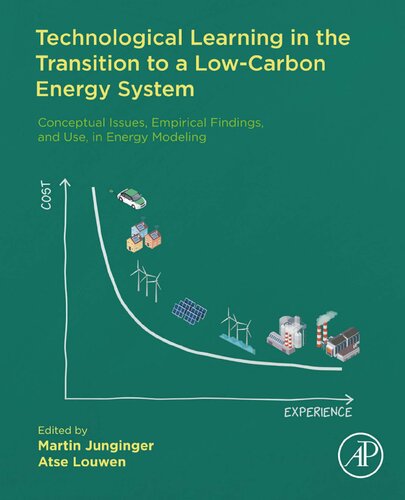

Most ebook files are in PDF format, so you can easily read them using various software such as Foxit Reader or directly on the Google Chrome browser.
Some ebook files are released by publishers in other formats such as .awz, .mobi, .epub, .fb2, etc. You may need to install specific software to read these formats on mobile/PC, such as Calibre.
Please read the tutorial at this link: https://ebookbell.com/faq
We offer FREE conversion to the popular formats you request; however, this may take some time. Therefore, right after payment, please email us, and we will try to provide the service as quickly as possible.
For some exceptional file formats or broken links (if any), please refrain from opening any disputes. Instead, email us first, and we will try to assist within a maximum of 6 hours.
EbookBell Team

0.0
0 reviewsTechnological Learning in the Transition to a Low-Carbon Energy System: Conceptual Issues, Empirical Findings, and Use in Energy Modeling quantifies key trends and drivers of energy technologies deployed in the energy transition. It uses the experience curve tool to show how future cost reductions and cumulative deployment of these technologies may shape the future mix of the electricity, heat and transport sectors. The book explores experience curves in detail, including possible pitfalls, and demonstrates how to quantify the 'quality' of experience curves. It discusses how this tool is implemented in models and addresses methodological challenges and solutions.
For each technology, current market trends, past cost reductions and underlying drivers, available experience curves, and future prospects are considered. Electricity, heat and transport sector models are explored in-depth to show how the future deployment of these technologies-and their associated costs-determine whether ambitious decarbonization climate targets can be reached - and at what costs. The book also addresses lessons and recommendations for policymakers, industry and academics, including key technologies requiring further policy support, and what scientific knowledge gaps remain for future research.